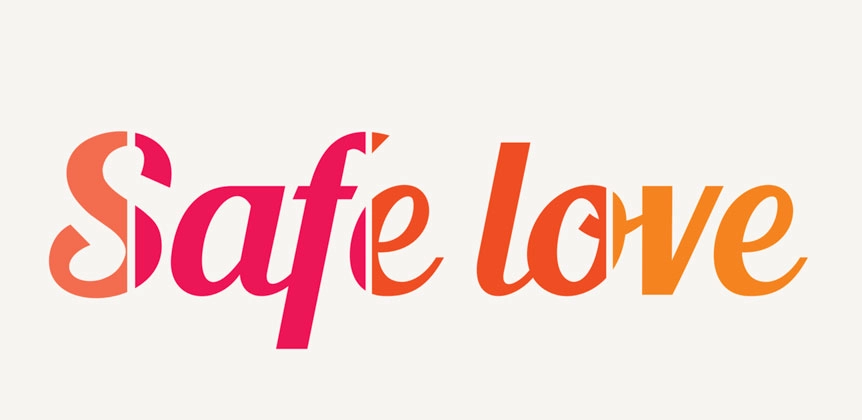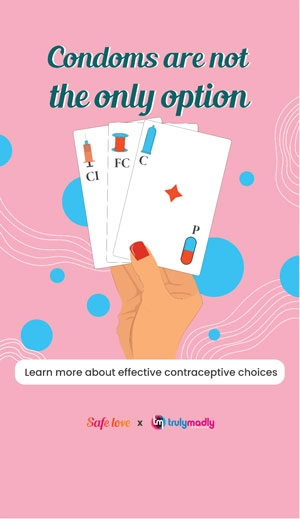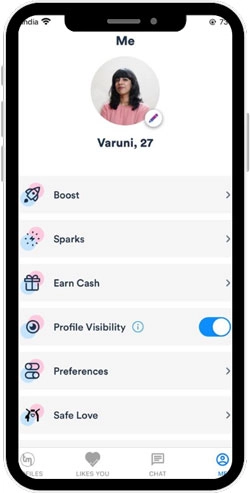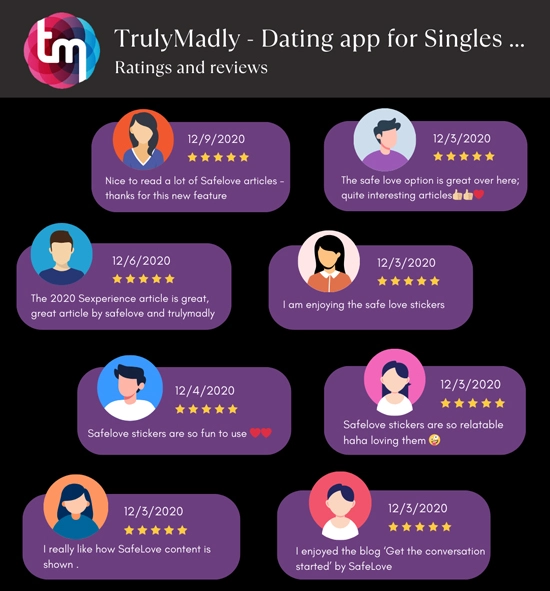Le projet Safe Love : utiliser les applications de rencontre comme un outil pour susciter des conversations essentielles sur la santé sexuelle

Il est essentiel de garantir l’équité dans l’accès à la santé sexuelle et reproductive (SSR), de renforcer les partenariats nouveaux et existants et de favoriser la résilience et l’innovation dans les systèmes de santé pour élargir l’accès complet à la SSR et répondre aux besoins diversifiés de la population. Pour aider les projets de SSR à atteindre ces objectifs, le SUCCÈS des connaissances projet, en collaboration avec le Réseau OMS/IBP, présente une série de trois histoires de mise en œuvre de programmes qui mettent en avant des exécutants qui ont réussi à surmonter ces complexités pour obtenir des résultats percutants. Ce reportage sur le projet Safe Love est l'un des trois récits de mise en œuvre sélectionnés pour la série 2024, les deux autres étant accessibles via le lien fourni ici.
Contexte du programme
À l’ère du numérique où les applications de rencontres sont devenues un élément central de la vie sociale des jeunes, Amour en sécurité Le projet a saisi une opportunité innovante de transformer ces plateformes en un outil d'éducation à la santé sexuelle et reproductive (SSR). Le programme, dirigé par Centre de catalyse du changement (C3) en Inde en partenariat avec le Vraiment fou application de rencontres et financée par le Fondation David et Lucile Packard, vise à fournir des informations sur les rapports sexuels protégés, y compris les méthodes contraceptives et la prévention des infections sexuellement transmissibles (IST), aux jeunes âgés de 18 à 30 ans, grâce à une approche amusante, facile à comprendre, sans jugement et affirmant le plaisir, qui permet aux jeunes de faire des choix éclairés concernant leur bien-être sexuel et reproductif.
En 2017, les données ont montré que 521 Indiens célibataires âgés de 25 à 34 ans étaient actifs sur des applications de rencontre. Depuis lors, les jeunes Indiens célibataires sont devenus l'un des plus grands marchés d'utilisateurs d'applications de rencontre à l'échelle mondiale. Reconnaissant la portée significative de ces plateformes, C3 a lancé le projet Safe Love en réponse à la demande de la Fondation Packard Défi Innovation Qualité (QIC), annoncée lors de la Conférence internationale sur la planification familiale de 2018 (ICFP). L’équipe C3 a constaté que les applications de rencontre étaient bien plus que de simples espaces de connexion : elles constituaient également des canaux inexploités pour fournir des informations essentielles sur la santé sexuelle et reproductive directement sur les écrans des jeunes Indiens.
Malgré l'utilisation généralisée de ces applications, les données des enquêtes nationales sur la santé familiale en Inde ont mis en évidence une lacune critique : les connaissances des jeunes sur les IST, les contraceptifs modernes et les principes du consentement et de l'autonomie corporelle dans le pays restaient alarmantes. Ce constat est devenu la force motrice de la mission de Safe Love, qui vise à donner à une génération les connaissances nécessaires pour faire des choix éclairés en matière de santé sexuelle et reproductive.
Récompensée en 2019 et initialement soutenue comme une initiative d'un an grâce à son financement QIC, l'accueil positif précoce de Safe Love lui a assuré un financement supplémentaire pour fonctionner jusqu'en 2022. Reconnaissant le potentiel des applications de rencontres en tant que plate-forme pour atteindre une population plus jeune avec des informations essentielles sur la SSR, C3 a entamé un partenariat avec TrulyMadly, une application de rencontres indienne locale qui comptait plus de 9 millions d'abonnés en 2020, ainsi qu'une réputation de se concentrer sur la sécurité des femmes dans la conception de ses applications.
Contrairement aux applications de rencontres internationales classiques, TrulyMadly a eu une audience significative dans les petites villes et les zones semi-urbaines en Inde où les lacunes en matière de sensibilisation à la santé sexuelle et reproductive étaient plus prononcées, ce qui a permis au projet d'atteindre efficacement un bassin plus diversifié de jeunes dans le pays. Par conséquent, le contenu de Safe Love a été adapté spécifiquement à ce public, en mélangeant les langues locales avec l'anglais et en intégrant le vernaculaire et le jargon familiers à la jeunesse indienne semi-urbaine.

En 2020, la pandémie de COVID-19 a entraîné une augmentation inattendue de l'utilisation des applications de rencontre, les utilisateurs passant plus de temps sur ces plateformes en raison des confinements. Et comme la plupart de ces utilisateurs ne payaient pas pour les versions premium de leurs applications, ils étaient régulièrement exposés à des publicités, que l'équipe de Safe Love a reconnues comme un puissant espace pour diffuser du contenu éducatif essentiel en matière de santé sexuelle et reproductive. Se concentrant initialement sur les pratiques sexuelles plus sûres, le projet s'est rapidement étendu à des sujets tels que l'étiquette des rencontres virtuelles, le consentement en ligne et la sécurité numérique pour refléter le passage aux interactions en ligne. En restant réactif aux besoins évolutifs des utilisateurs, Safe Love a maintenu la pertinence de son message. Même lorsque les confinements se sont assouplis et que les interactions en personne ont repris, l'adaptabilité du programme a permis de continuer à partager des messages pertinents pour offrir une éducation sanitaire efficace au public diversifié et engagé qui utilise l'application.
Découvrez le modèle du programme Safe Love
Le contenu de Safe Love a été intentionnellement conçu par de jeunes créateurs, concepteurs et développeurs pour trouver un écho auprès de son public, en s'assurant qu'il réponde directement aux expériences et aux préoccupations des jeunes. Cet engagement à utiliser un langage - souvent Hinglish—et un ton familier et pertinent était essentiel pour établir la confiance avec leur public. Le contenu a été conçu pour être facile à comprendre, pertinent et agréable, s'éloignant d'un ton moralisateur pour adopter un ton conversationnel et engageant.
Comme l’explique Varuni Narang, responsable principal du programme C3, « nous voulions parler aux jeunes dans une langue qu’ils parlent déjà. Cela signifie qu’il ne s’agissait pas de dire aux utilisateurs « Hé, saviez-vous que cette IST existe ? » Au lieu de cela, l’application [les utilisateurs] leur dirait des choses comme « Alors hier soir, vous avez rencontré quelqu’un, mais comment allez-vous parler de son passé sexuel ? » et nous inclurions des questionnaires et des outils pour faciliter cette conversation. »
Au sein de l'application, des sujets importants sur la santé sexuelle ont été intégrés à l'expérience utilisateur grâce à des fonctionnalités amusantes et interactives telles que des autocollants dans le chat, des gribouillages brise-glace et des questionnaires de compatibilité qui ont permis d'introduire en douceur des sujets tels que la sécurité, la positivité corporelle et la communication respectueuse. Les autocollants Safe Love ont même été mis en évidence dans un TrulyMadly vidéo promotionnelle sur les réseaux sociaux, démontrant comment ces outils pourraient faciliter les discussions sur la santé sexuelle et le consentement entre partenaires amoureux.

De plus, un bouton permanent Safe Love a été ajouté au menu utilisateur de l'application pour diriger les utilisateurs vers un site Web Safe Love rempli d'articles plus longs, de FAQ et de questionnaires sur un large éventail de sujets liés à la santé sexuelle et reproductive. En intégrant ces éléments directement dans l'application, Safe Love a aidé les utilisateurs à prendre des décisions éclairées en matière de santé sexuelle et reproductive sans avoir l'impression d'être ciblés par une campagne externe.
Adaptations de contenu basées sur les données
Lors de la sélection de TrulyMadly comme partenaire de l'application de rencontre pour la mise en œuvre, le projet Safe Love a valorisé l'expérience éprouvée de l'équipe de conception de TrulyMadly dans la création, le lancement et la mise à l'échelle d'applications précédentes à succès. Cette expertise s'est manifestée dans leur soutien aux tests pilotes efficaces et à la mise à l'échelle des fonctionnalités de l'application Safe Love. En intégrant ces processus itératifs dans la conception des fonctionnalités Safe Love sur l'application TrulyMadly, les deux équipes ont pu surveiller l'engagement des utilisateurs et ajuster le contenu en fonction des informations de données en temps réel, garantissant ainsi que le contenu reste pertinent et efficace.
Parce que la compréhension des besoins et des préférences de la base d'utilisateurs de l'application était essentielle au succès de Safe Love, l'équipe a développé et mené des enquêtes dans l'application auprès de plus de 2 000 utilisateurs de TrulyMadly pour mieux comprendre comment adapter son contenu. Les enquêtes ont révélé des informations clés, notamment
- 50% des utilisateurs n'étaient pas confiants pour discuter de sexe avec de nouveaux partenaires
- Plus de 60% n'ont pas compris le consentement
- 30% insistait rarement ou jamais sur l'utilisation de la protection
- 50% craint d'être jugé s'il révèle une infection sexuelle
- 60% souhaitait que son application de rencontre fournisse des informations sur les rapports sexuels protégés
Ces résultats ont directement influencé le contenu de Safe Love, aidant l’équipe à adapter le matériel aux besoins réels et exprimés des jeunes utilisant la plateforme.

Impact du programme
Mesurer le succès
Étant donné la nature transitoire des utilisateurs d’applications de rencontre, le projet Safe Love s’est concentré sur les mesures d’engagement des utilisateurs dans l’application pour évaluer le succès plutôt que sur les enquêtes traditionnelles avant et après les tests. Cette approche a permis à l’équipe du projet d’adapter et d’optimiser en permanence le contenu en fonction des interactions des utilisateurs en temps réel, garantissant ainsi que les informations sur la santé sexuelle et reproductive restent pertinentes et convaincantes. Bien que l’audience mobile ait présenté des défis pour mesurer le changement de comportement à long terme, elle a fourni un avantage unique en permettant à Safe Love d’atteindre systématiquement des groupes de jeunes nouveaux et diversifiés chaque mois.

Impact et engagement
Au cours de la durée du projet, Safe Love a contribué à élargir le débat sur la santé sexuelle et reproductive au grand public, en touchant un public diversifié et dynamique qui n'a généralement pas accès à des informations précises et exemptes de jugement sur la santé sexuelle. Avec environ 500 000 utilisateurs actifs sur l'application TrulyMadly chaque mois, le projet a atteint les indicateurs d'engagement suivants au cours de ses deux premières années :
- La barre latérale Safe Love de l'application a reçu 103 112 visites
- Le site Web éducatif auquel renvoie le lien depuis la barre latérale a accumulé 600 528 vues, présentant aux utilisateurs des sujets sur les rapports sexuels protégés, le consentement et la santé sexuelle.
- Les quiz de compatibilité intégrés à l'application ont été joués 44 038 fois.
- Les autocollants de discussion intégrés à l'application ont été partagés entre les utilisateurs 28 954 fois.
- Le profil sponsorisé, qui fournissait des informations détaillées sur les pratiques sexuelles plus sûres, a recueilli 226 416 clics.
Ce niveau élevé d'engagement, associé aux critiques positives de l'App Store, a démontré la valeur du projet aux utilisateurs et a finalement conduit TrulyMadly à prendre officiellement possession de Safe Love, notamment en intégrant de manière permanente son contenu sur son site Web principal et sa plateforme. En conséquence, TrulyMadly est devenue la première application de rencontre en Inde à promouvoir activement des informations sur les rapports sexuels protégés, marquant une étape importante vers la déstigmatisation de sujets souvent tabous sur la santé sexuelle et reproductive.
Amplifier la portée grâce aux influenceurs
Pour étendre la portée et l’impact du programme, Safe Love a également collaboré avec des influenceurs locaux. Par exemple, le Dr Cuterus (le nom d’utilisateur en ligne du Dr Tanaya Narendra), un médecin très présent sur les réseaux sociaux, a utilisé sa plateforme pour promouvoir TrulyMadly et démystifier les mythes sur la contraception d’urgence et la virginité auprès de son public sur Instagram. Ces influenceurs ont joué un rôle crucial pour connecter Safe Love à un public plus large, maximisant ainsi l’impact du programme.
Renforcer les partenariats public-privé
L’un des principaux succès du projet a été d’obtenir l’adhésion d’une organisation à but lucratif. Convaincre un partenaire d’application de rencontre comme TrulyMadly qu’une initiative comme Safe Love pouvait avoir un impact positif sur sa marque a nécessité une réflexion et une collaboration minutieuses. Comme le savent de nombreuses ONG ou initiatives de santé publique communautaires, trouver et établir des partenariats solides avec le secteur privé peut être un apprentissage difficile qui a un impact profond sur les résultats d’un projet.
Même après que C3 a conclu un partenariat avec TrulyMadly et que le contenu Safe Love a été mis en ligne sur l'application, l'équipe a dû démontrer, par le biais d'indicateurs de portée et d'engagement significatifs, que le travail qu'ils avaient conjointement réalisé sur Safe Love répondait à un besoin du marché et que les utilisateurs recherchaient activement des informations sur les pratiques sexuelles plus sûres. En montrant qu'un contenu amusant, engageant, sans jugement et informatif pouvait permettre aux utilisateurs de se sentir valorisés et pris en charge, Safe Love a montré comment l'application pouvait se positionner comme socialement responsable.
Cette approche a porté ses fruits ; grâce à des critiques positives sur l'application et à un engagement élevé, TrulyMadly a finalement pris pleinement possession de l'initiative après deux ans, en intégrant le contenu de Safe Love dans sa plateforme principale, en créant un langage de marque et un logo mis à jour pour Safe Love et en continuant à produire du nouveau contenu Safe Love.
En fin de compte, cela a aidé que dès le début, le nom de TrulyMadly ait toujours été présent sur le produit Safe Love (C3 n'a jamais eu son nom ou son logo associé au projet).
« Au début, nous avons expliqué à TrulyMadly que notre intention était de leur offrir Safe Love, en leur disant : « Laissez-nous vous aider à le tester, à le piloter et à voir ce que vous en pensez. Si vos utilisateurs y répondent, prenez-en possession. » Nous voulions que Safe Love ressemble à l'initiative de l'application, car c'est de là que vient l'adhésion des utilisateurs. Si nous avions mis notre nom dessus, ils auraient été moins susceptibles de l'intégrer à leur produit à long terme. Et nous ne voulions pas non plus que les utilisateurs lisent les informations de santé sur l'application et pensent qu'elles proviennent d'une ONG qui leur prêche. »
Surmonter les obstacles courants : défis et solutions efficaces
Vous trouverez ci-dessous un résumé des principaux défis rencontrés au cours du projet Safe Love et de la manière dont l’équipe du projet a relevé ces défis.
| Défi | Comment cela a été abordé |
|---|---|
| Impact de la pandémie de COVID-19 : La pandémie a perturbé la conception initiale et la mise en œuvre du projet, et le confinement a changé les habitudes des utilisateurs d’applications de rencontres. | Adaptation et flexibilité : En s’adaptant rapidement à l’évolution du paysage, le projet a élargi son contenu pour couvrir les interactions en ligne, garantissant que le message reste pertinent et percutant. Cette flexibilité a permis à Safe Love de maintenir l’engagement et de dispenser efficacement une éducation sanitaire même si les comportements des utilisateurs ont continué d’évoluer après le confinement. |
| Stigmatisation et inconfort : Trouver un partenaire d’application approprié était difficile en raison de la stigmatisation et de la réticence à discuter de santé sexuelle. | Améliorer la crédibilité de la marque : En présentant le contenu sur le sexe sans risque comme amusant, engageant et sans jugement, Safe Love a travaillé avec son partenaire pour démontrer comment l'inclusion de ces fonctionnalités pouvait améliorer la réputation de l'application en tant qu'application socialement responsable, permettant aux utilisateurs de se sentir valorisés et pris en charge. |
| Pertinence linguistique et culturelle : Le contenu initial n'a pas trouvé d'écho auprès du public et a suscité un engagement moindre car il était écrit dans un style trop « intellectuel » ou académique ; il ne correspondait pas au jargon quotidien du public parlant hindi-anglais. | Adaptation du contenu : Pour mieux se connecter avec les utilisateurs, l’équipe a rapidement simplifié le langage et rendu le contenu plus visuel et accessible, en l’alignant sur les termes et expressions familiers du public clé. |
Leçons apprises
1. Conception centrée sur l'utilisateur :
Le succès de Safe Love repose sur son engagement à répondre aux commentaires des utilisateurs, notamment en créant un contenu pertinent, facile à comprendre et engageant pour le public cible. L'utilisation du hinglish, de fonctionnalités interactives telles que des quiz et des autocollants, et l'accent mis sur une approche positive du plaisir ont contribué à garantir que le message trouve un écho auprès des jeunes. Cette leçon souligne l'importance de concevoir des interventions qui s'adressent directement aux expériences vécues et au langage des utilisateurs visés, rendant le contenu non seulement accessible mais également attrayant.
2. Tirer parti des plateformes établies pour la durabilité :
Pour les projets qui cherchent à éviter les coûts de démarrage élevés liés au lancement d'une plateforme numérique et les limites d'un financement par subvention à durée déterminée, un partenariat avec une plateforme numérique établie peut être une approche stratégique. En intégrant votre contenu dans une plateforme qui dispose déjà d'une base d'utilisateurs solide et en veillant à ce que le partenaire s'approprie pleinement l'initiative, le projet peut évoluer d'une campagne externe vers une fonctionnalité d'application précieuse et intégrale pour les utilisateurs. Lorsque les utilisateurs considèrent l'intervention comme un élément bénéfique de leur expérience, elle devient un argument de vente, renforçant l'attrait de la plateforme. Les commentaires et l'adhésion des utilisateurs encouragent le partenaire à continuer de soutenir et de promouvoir le contenu, en l'utilisant comme un outil marketing clé et en augmentant la probabilité de durabilité à long terme après la fin du financement initial.
Conclusion
En proposant un contenu attrayant via la plateforme populaire TrulyMadly, le projet Safe Love a atteint des centaines de milliers de jeunes utilisateurs d'applications à travers l'Inde et a encouragé des conversations éclairées sur la santé sexuelle entre partenaires de rencontres. Alors que TrulyMadly intègre Safe Love de manière permanente à sa plateforme, le parcours du projet est un puissant rappel que tout changement significatif commence souvent par sortir des sentiers battus et aller à la rencontre des gens là où ils se trouvent.
Vous souhaitez en savoir plus sur le projet Safe Love ? Contactez les membres de l'équipe suivants pour plus d'informations : vnarang@c3india.org et rbanerjee@c3india.org.




